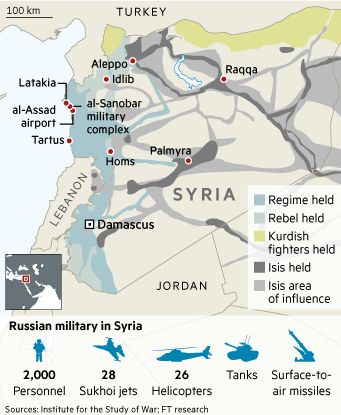Catalan independence boost, India’s tech deals and the future of cities

Stay up to date:
Spain
The daily briefing “FirstFT” from the Financial Times.
Catalonia’s independence movement won a historic but incomplete election victory on Sunday night, securing a majority of seats in the regional parliament but falling short of winning an outright majority of the vote.
The poll was seen as a test of the region’s desire to break with Spain and set up an independent republic. It was held after years of tension between the state and the region, and after Madrid declined appeals to allow Catalans to vote in a Scotland-style in-out referendum. El País considers what happens next. (FT, El País)]
In the news
Saudi Arabia withdraws overseas funds The country has withdrawn tens of billions of dollars from global asset managers as the oil-rich kingdom seeks to cut its widening deficit and reduce exposure to volatile equities markets amid the sustained slump in oil prices. The Saudi Arabian Monetary Agency’s foreign reserves have slumped by nearly $73bn since oil prices started to decline last year. (FT)
US-China development bank truce US officials have declared what amounts to a truce in their campaign over China’s new Asian infrastructure bank, claiming that they have secured commitments from Beijing to address Washington’s concerns. They say China will also “meaningfully increase” its financial contributions to the World Bank. (FT)
Isis foreign recruit drive Nearly 30,000 foreign recruits have now poured into Syria, many to join the Islamic State of Iraq and the Levant, a doubling of volunteers in just the past 12 months despite efforts to step up border controls. That includes more than 250 Americans, according to intelligence and law enforcement officials. (NYT)
Modi signs US tech deals The Indian prime minister signed a host of agreements during a two-day tour of Silicon Valley’s most prominent companies, highlighting India’s tech ambitions. Among the Silicon Valley heavyweights to announce deals were Google, which confirmed plans to launch free WiFi in 500 Indian railway stations, and Microsoft, which pledged to help bring low-cost broadband to 500,000 Indian villages. (FT)
UK pledges climate change aid The UK has vowed to deliver nearly £6bn of aid to poor countries over the next five years to help them deal with climate change. A total of £5.8bn will be channelled to developing nations from next April, a sum that officials said amounted to anincrease of at least 50 per cent from previous contributions. (FT)
It’s a big day for
Global relations President Barack Obama of the US, Vladimir Putin of Russia, Raúl Castro of Cuba and Hassan Rouhani of Iran will address the UN General Assembly in New York. From Nikita Khrushchev pounding the table with his shoe to Muammer Gaddafi ripping up the UN charter, here are six historic moments from the annual meeting. (NYT)
Food for thought
Why VW is worse than Enron There are reasons to believe the fallout from the Volkswagen scandal will be as big as Enron, or even bigger. Most corporate scandals stem from negligence or the failure to come clean about corporate wrongdoing. Far fewer involve deliberate fraud and criminal intent. (FT)
On mistakes, brain surgeons know best “How mature”, came the response to comments from UBS bank chief Sergio Ermotti last week that it was OK for employees to make mistakes. But it wasn’t mature. It was mad, says the FT’s Lucy Kellaway. (FT)
The battle for Syria Russian intervention in support of the isolated regime of President Bashar al-Assad has come at a time when Washington’s strategy for resolving the conflict is in tatters. Now, the Obama administration finds itself facing two potentially perilous choices: either trying to work together with Moscow to find a political solution or expanding America’s own involvement in the conflict. (FT)
Cities by design A look at eight global cities that show you how the future will look. It begins in ultra-connected Los Angeles and travels through Shanghai, Eindhoven and Mecca. (Wired)
The truth is out there Millions of planets once dismissed as inhospitable could in fact be suitable for alien life, according to new research by theoretical physicists, who believe the climates of these planets could be much less severe than previously thought. (Quartz)
Video of the day
The drugs don’t work After a week of deepening fears about global growth, John Authers points out that stock markets are becoming more discriminating, with US pharmaceuticals and European carmakers the big casualties. (FT)
This article is published in collaboration with FirstFT. Publication does not imply endorsement of views by the World Economic Forum.
To keep up with the Agenda subscribe to our weekly newsletter.
Author: FirstFT is the Financial Times’ editors curated free daily email of the top global stories from the FT and the best of the rest of the web.
Image: The hands of Indian blogger, as she blogs from her living room. REUTERS/Vivek Prakash.
Don't miss any update on this topic
Create a free account and access your personalized content collection with our latest publications and analyses.
License and Republishing
World Economic Forum articles may be republished in accordance with the Creative Commons Attribution-NonCommercial-NoDerivatives 4.0 International Public License, and in accordance with our Terms of Use.
The views expressed in this article are those of the author alone and not the World Economic Forum.
Forum Stories newsletter
Bringing you weekly curated insights and analysis on the global issues that matter.
More on Emerging TechnologiesSee all
Keith E. Ferrazzi
April 7, 2025
Jeremy Jurgens
April 7, 2025
Robert Opp and Keyzom Ngodup Massally
April 4, 2025
Ibrahim Abdullah Alshunaifi and Caroline Tasse
April 3, 2025






